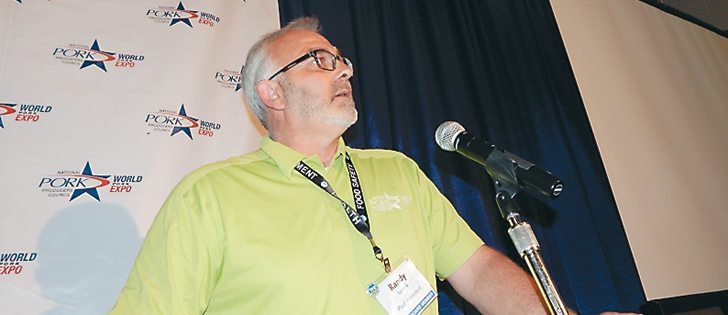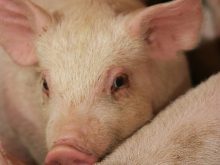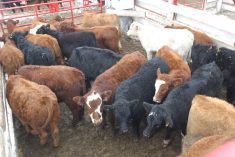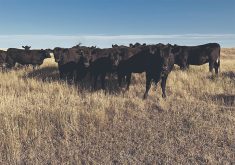DES MOINES, Iowa — The American hog industry has worked itself into a lather of outrage over Japan’s attempt to maintain protection for some farmers.
The National Pork Producers Council says the United States can’t agree to a deal that maintains prohibitive import controls on U.S. pork.
“Japan’s current market access offer, if accepted, would be unprecedented in a U.S. trade agreement,” said former NPPC president Randy Spronk, a trade specialist.
“It would rob U.S. farmers and ranchers of billions (of dollars in) sales.”
Read Also

Beef check-off collection system aligns across the country
A single and aligned check-off collection system based on where producers live makes the system equal said Chad Ross, Saskatchewan Cattle Association chair.
Japan’s position at the Trans Pacific Partnership trade talks, which is that it needs to maintain controls such as the “gate price” on imported pork, was raised numerous times during the World Pork Expo.
NPPC was a big supporter of allowing Japan to enter the TPP talks, lobbying the U.S. government to invite the wealthy nation into the negotiations and encouraging other export farm industries to support Japan’s entry.
However, Japan’s resolute resistance to dismantling its obstacles to completely open access has so infuriated the NPPC and other farm groups that they are now encouraging the U.S. government to tell Japan to drop out of the TPP talks if it won’t liberalize access.
“We’re not budging. We’re not giving special treatment to Japan on pork — period,” said an impassioned Nick Giordano, the NPPC’s trade vice-president,
Japan’s “gate price” sets a minimum price for imported pork, which prices even offal at a premium meat price level. That makes most imported pork prohibitively expensive compared to domestic pork.
“What it’s forcing us to do is, for the most part, sell only high value products like loins and tenderloins to the Japanese market,” said Giordano.
Spronk said any allowance for Japanese protections would come back to haunt the U.S. because countries such as China and the Philippines would demand similar concessions.
“Whatever the U.S. does for Japan on pork and other agricultural products will be demanded by all future U.S. free trade agreement partners,” he said.
Giordano said other U.S. agriculture industries are still targeting Canada for an end to import restrictions and don’t want to see that weakened by a “TPP-light” deal with Japan.
“For our dairy guys, it’s not just about Japan, it’s about Japan and Canada,” said Giordano.
“If the Japanese don’t open up, the Canadians aren’t going to open up.”
The NPPC is outraged at Japan partly because of its feeling that it might have been mistaken to believe it could get open access to the Japanese market, something it was warned about.
“We were Japan’s biggest supporter,” he said.
Some sectors, such as the American automotive industry, opposed Japan’s entry to the talks.


















